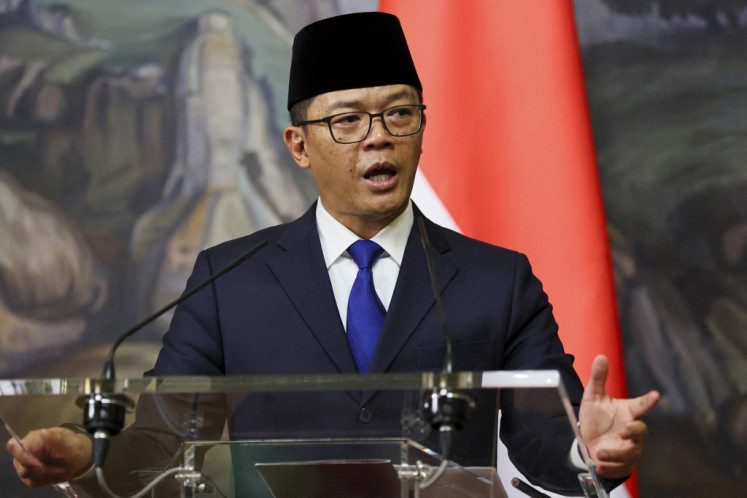Popular Reads
Top Results
Can't find what you're looking for?
View all search resultsPopular Reads
Top Results
Can't find what you're looking for?
View all search resultsEditorial: Good for plantations
It is not good to change the rules of the game while the match is still in play
Change text size
Gift Premium Articles
to Anyone

I
t is not good to change the rules of the game while the match is still in play. But we should still commend the old House of Representatives for its approval of a new law on plantations one day before it ended its five-year term late last month even though the old law was only 10 years of age while plantation business licenses normally last for 35 years.
First of all, the final text of the new law abolishes the 30 percent maximum cap on foreign shareholding at a plantation company, as stipulated in the bill, and instead authorizes the government to regulate foreign share ownership restrictions through one of the dozens of presidential regulations and ministerial decrees that have yet to be issued to implement the new legislation.
Some investors may still be apprehensive about the upcoming government regulation on foreign investors as regards the maximum shareholding and size of plantations and the type of plantation commodities, especially because the new law explicitly stresses that domestic interests should be prioritized in plantation development.
Yet it is further great news that the new law is not retroactive to foreign plantation companies already in operation, meaning that foreign investors are not required to adjust to the new law until the end of their 35-year plantation investment license. But domestic plantation firms are required to adjust to the new law within five years of its enactment.
The new legislation should be welcomed because it is more comprehensive, covering the whole spectrum of plantation development, including seed development, planting, refining and marketing as well as other aspects related to the environment, local community development and so on.
The new legislation also specifically regulates management cooperation between plantation companies and local farmers or smallholders, stipulating that companies shall allocate a minimum of 20 percent of the total acreage of their plantation area to smallholders through bank financing, processing and marketing arrangements.
This cooperation concept is similar to the nucleus estates and smallholders (NES) program developed since the mid 1970s, whereby big plantation companies serve, in a broad sense, as the agent of development for smallholders.
The NES concept is good for plantation development and for enhancing equitable development and good relations between big firms and with local communities, as smallholders can plant or replant their small estates under the technical guidance and financing assistance of big plantations located nearby. We are afraid that if the expansion of plantations, especially oil palm, by big companies remains at its current rate of more than 150,000 hectares a year, mounting problems of inequality of income and wealth and land conflicts could threaten the long-term sustainability of the plantation industry, even the macroeconomic stability.
We still believe harmonious and mutually-beneficial cooperation between big plantations companies and smallholders is the most effective way of expanding tree-crop plantations such as oil palm and rubber without widening inequality in land holding.









